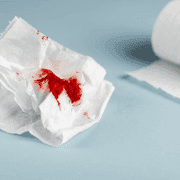Preparing for Your First Female Piles Doctor Visit
In This Article
Preparing for Your First Female Piles Doctor Visit
Jaymala
Updated on October 07, 2024
Medically verified by Dr. Arya
Fact checked by Dr. Fazeela

Proctology
5 min read
Piles can be highly uncomfortable and you would want to get rid of it as soon as possible.
Sometimes we don’t know how to discuss this issue with a female doctor, but remember, for them it is an everyday issue.
If you are going for your first appointment with a female piles doctor and you don’t know where to start, then this blog is perfect for you.
Mykare Health is here to guide you with the complete process along with questions to be asked for your appointment, with a female, and other things so that your journey becomes comfortable.
Gather Medical History
-
You should list past health issues, such as bowel disorders, or chronic constipation, diabetes, or hypertension, as they may affect treatment options.
-
Notify any treatments you've had for piles. Mention all the medications you are taking.
-
Note any family history of piles as genetics may play a role in your condition. Mention your allergies to medications, or other substances.
-
Discuss your diet, exercise habits, and bowel routine, as these can directly affect piles. Get your copies of recent medical tests.
Understand Your Symptoms
-
Try to understand your symptoms such as any discomfort in the anal area, swelling or lumps near the anus, itching or irritation, bleeding during bowel movements, mucus discharge etc.
-
Note how long you’ve been experiencing symptoms, whether they are continuous or intermittent. Mention if the symptoms have worsened over time or have been relatively stable.
-
Note anything that helps relieve your symptoms, such as warm baths, or changes in diet. Note any other related symptoms.
Prepare a List of Questions
You can make a list of your questions to be asked such as What exactly are piles, and what might be causing mine? Are my symptoms indicative of internal or external piles, or both? and How severe is my condition? Is a physical examination or colonoscopy necessary? When would surgery be recommended, and what does it involve?
You can also ask questions related to lifestyle modifications, such as exercise or hydration, would be beneficial or not? Is there any benefit to using home remedies like sitz baths?
You can also ask about your surgery such as What are the risks of surgery or other invasive procedures? Are there any alternative treatments or therapies that could complement my treatment?
Bring Necessary Documents
-
Bring a government-issued photo ID, such as a driver’s license or passport, for registration and identification purposes.
-
Do carry your health insurance card to cover the cost of your consultation, tests, or treatments.
-
Include a summary of any previous medical history related to gastrointestinal or anorectal issues. Get all your test results and medications with you.
 5 min read
5 min readDon't Ignore Bummy Pain: Could It Be Piles?
 7 min read
7 min readBlood In The Stool: A Sign You Shouldn’t Ignore
 6 min read
6 min readSitting All Day Wreaking Havoc? It Might Be Piles!
Get a Callback Now
Plan for Physical Examination
-
The doctor may perform a visual inspection of the anal area to check for external piles or other issues like fissures.
-
For internal piles, the doctor might do the test by inserting a lubricated, gloved finger into the rectum to feel for any abnormalities.
-
You should wear loose-fitting clothing that is easy to remove, especially from the waist down. This will make the examination process comfortable for you.
-
Try to relax as it can help minimise discomfort during the test. You can go with any of your trusted relatives for emotional support.
-
You should feel free to ask any question about what the doctor found or the next steps in your treatment.
Prepare Mentally and Emotionally
It’s normal to feel anxious, embarrassed, or even scared before discussing personal health issues with a doctor. Recognise and accept these feelings without judgment.
Keep in mind that doctors deal with these kinds of conditions regularly. For them, examining and discussing piles is routine and professional.
Think of the appointment as a step toward healing and finding relief from discomfort or pain. Spend a few minutes focusing on your breath to calm yourself.
Dietary and Lifestyle Habits
-
Be ready to explain your typical daily diet, such as snacks, and beverages.
-
Highlight foods that may contribute to constipation, such as dehydration or low fibre intake.
-
Stay hydrated as it softens stools. Share whether you drink enough water regularly or not.
-
Discuss how often you have bowel movements and whether you experience straining, or constipation.
-
Mention if you lead a sedentary lifestyle, such as sitting for long periods, which can worsen the condition.
-
Ask your doctor for safer alternatives if you’re relying heavily on laxatives to relieve constipation.
-
You can ask your doctor if eating smaller, more frequent meals can help regulate bowel movements.
-
Ask whether you should adjust your fibre intake or add natural fibre sources to your diet.
Understand Treatment Plans
Once you recognize your issue and you discuss your condition with your doctor, you go with the treatment plan. Following are the treatment plans for mild to moderate piles.
-
Your doctor may prescribe some creams, or ointments, to relieve itching, swelling, and discomfort. You can ask for the best topical treatments for your symptoms?
-
Pain relievers, anti-inflammatory drugs, or stool softeners may be prescribed to reduce discomfort and prevent straining. You can ask for medications that can help you manage your symptoms better?
-
Sitting in a few inches of warm water for 10–15 minutes several times a day can help reduce pain and inflammation. You can ask about the frequency of sitz baths.
-
Other things are adding more fibre to your diet and staying hydrated, exercise
-
Sometimes, a solution is injected into the piles to shrink them. This is typically used for smaller internal piles. You can ask about the number of such treatments needed.
-
For severe piles or when other treatments have failed, surgery may be necessary.
Present a summary of your medical history, including previous treatments, current medications, allergies, and family health history.
Keep a detailed record of your symptoms, including their type, duration, frequency, severity, and any triggers or relief measures.
Prepare a list of questions to ask about your condition, diagnostic procedures, treatment options, and lifestyle modifications.
Get necessary documents for accurate diagnosis and treatment planning.
Wear comfortable, loose-fitting clothing and be prepared for a physical examination.
Consider relaxation techniques, bringing a supportive companion, and focusing on the benefits of seeking treatment.
Discuss your diet, hydration, exercise routine, bowel habits, and other lifestyle factors that impact your condition.
Familiarize yourself with the available treatment options, including non-surgical, minimally invasive, and surgical procedures.



